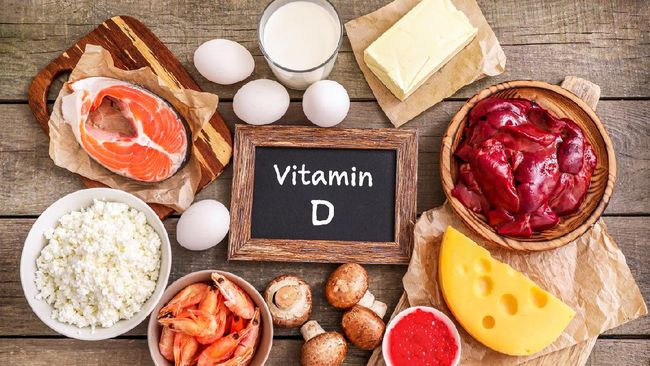Most people are deficient in vitamin D, but too much is definitely not good either.
In hot summers, the sun is dazzling. Vitamin D comes to us in abundance. Even in the winter, it is recommended that you get outside regularly to get enough vitamin D. If that doesn’t work, supplements can help maintain levels.
But many people just take a few supplements without informing themselves, and what’s worse is that those pills are not healthy. No, no, because too much vitamin D can also cause nasty symptoms!
What is Vitamin D?
But let’s start at the beginning. Vitamin D is essential for the body to absorb calcium from food. In other words, this vitamin is responsible for maintaining strong bones and good muscle function. It is recommended that young children, the elderly, dark-skinned people, people who do not get out much, and pregnant women consume extra vitamin D. Sunlight is the main source of vitamin D, but it is also found in foods such as oily fish, meat, and eggs.
There are two types of vitamin D found in foods.
- Ergocalciferol (vitamin D2)
- Cholecalciferol (vitamin D3)
Vitamin D2 is found mainly in mushrooms and fungi, while vitamin D3 is found in animal products. Both vitamins are included in supplements to ensure adequate vitamin D intake.
Excessive Intake of Vitamin D
Vitamin D overdose is caused by taking large amounts of vitamin D supplements. To ensure adequate sunlight exposure, try to get 15 to 30 mins of sunlight on your head and hands between 11:00 AM and 3:00 PM daily. This way you can be sure that enough vitamin D is being produced.
Excess vitamin D can cause high levels of vitamin D in the body, which can lead to disorders. This is also known as hypervitaminosis D. Vitamin D is a fat-soluble vitamin. Unlike water-soluble vitamins, fat-soluble vitamins are not easily eliminated from the body. This means that they can accumulate in the body.
How Much Vitamin D Should I Take?
But when is it excessive? For an adult woman, 10 to 20 micrograms (mcg or µg) of vitamin D per day is sufficient. Excess occurs only if more than 100 micrograms of vitamin D per day is consumed over a prolonged period of time. Overdose of vitamin D can only occur with prolonged over-supplementation.
Additional vitamin D intake is recommended by the Ministry of Health, Labor, and Welfare for dark-skinned people, people who are rarely out of the house, pregnant women, women over 50 years old, and men over 70 years old. These supplements can be purchased at pharmacies. They are available in drops, capsules, and tablets. These supplements often contain about 50mcg or 75mcg of vitamin D, which is more than the recommended daily intake, and should not be taken lightly.
:focal(959x705:961x707)/vitamin-d-AdobeStock_270150827-d45cf603602540499b67ad0a6df3193d.jpg)
Symptoms of Excessive Vitamin D Consumption
There are several things that can happen to your body if you consume too much vitamin D
- Kidney stones
- Calcium deposits around organs
- Damage to the heart
- Nausea
- Vomiting
- Loss of appetite
- Fever
- Shivering
- Drowsiness or fatigue
- Weight loss
What Can Be Done About Excess Vitamin D?
In cases of vitamin D toxicity, your doctor may instruct you to limit your dietary calcium intake. Treatment may also include discontinuing vitamin D supplements, at least temporarily.
Not sure if you should take extra vitamin D? Testing your vitamin D levels will help you determine if your levels are normal or if you need to make changes. You can discuss with your doctor and do the necessary to know more.
Share your thoughts with us in the comments below!


